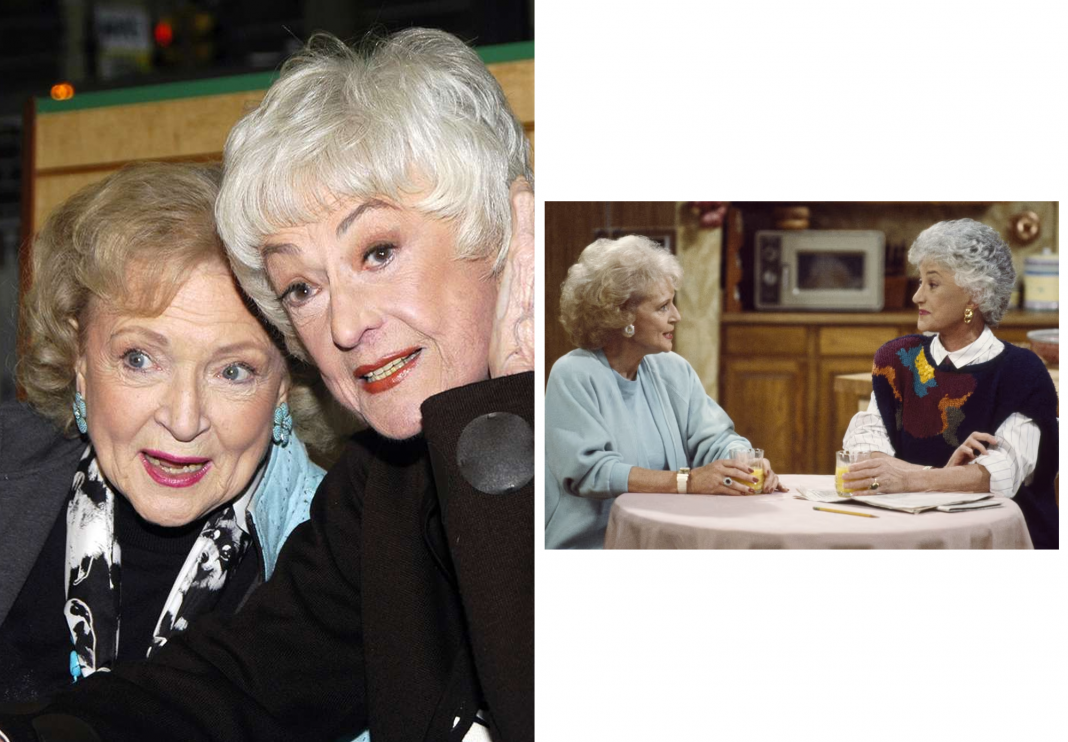Though The Golden Girls charmed audiences with its wit, warmth, and iconic cast chemistry, a new revelation from behind the scenes suggests not all friendships were as golden as they seemed. At a recent Hollywood panel, former producers and writers confirmed that stars Betty White and Bea Arthur had a long-running feud that may have ultimately led to the show’s early end.
A show built on chemistry—and conflict
On-screen, The Golden Girls portrayed the enduring bond between four older women living in Miami, creating one of television’s most beloved ensembles. But according to members of the production team who spoke during a Pride LIVE! panel at NeueHouse Hollywood, off-screen dynamics were far more complicated. Co-producer Marsha Posner Williams offered the most revealing comments, specifically about the friction between Betty White (Rose Nylund) and Bea Arthur (Dorothy Zbornak).
“When that red light was on, there were no more professional people than those women,” Williams said. “But when the red light was off, those two couldn’t warm up to each other if they were cremated together.” She recounted receiving multiple calls from Arthur venting about White, including one time when the actress referred to her co-star using the c-word after a run-in at the grocery store. “Bea, just get over it for crying out loud,” Williams recalled telling her.

These weren’t isolated incidents. Williams described dinner visits to Arthur’s home where disparaging remarks about White were almost immediate. The tension, she said, went far beyond casual dislike.
A feud that may have ended the show
The Golden Girls ran for seven successful seasons from 1985 to 1992 and became a cultural juggernaut, winning 11 Primetime Emmy Awards and cementing its legacy in pop culture. But as the show neared its conclusion, Williams believes the White-Arthur feud played a significant role in its wrap-up. “The show would have continued after seven years,” she said, but added that Arthur’s refusal was the deciding factor. “Executives went to the ladies, and Estelle [Getty] said, ‘Yes, let’s keep going,’ and Rue [McClanahan] said, ‘Yes,’ and Betty said, ‘Yes.’ And Bea said, ‘No f–king way.’”
According to Williams, part of Arthur’s irritation may have stemmed from White’s habit of breaking character to engage with the live studio audience—something the theatrically trained Arthur reportedly despised. Audience dynamics may have added fuel to the fire, with some speculation that White’s popularity and bigger applause during cast introductions further strained their relationship.
Despite their differences, neither actress ever let the tension bleed into their performances. Their professionalism remained intact, delivering sharp, emotionally layered comedy that still resonates with viewers nearly four decades later.
LGBTQ+ legacy and allyship behind the scenes
While the panel focused on behind-the-scenes drama, it also highlighted the show’s quiet but powerful impact on LGBTQ+ representation during a time when such topics were rarely broached on television. Writer Stan Zimmerman shared his personal story of being closeted while working on the show—and the unexpected allyship he found on set.
Zimmerman recalled how Estelle Getty (who played Sophia Petrillo) warmly welcomed him and his writing partner. “She’s like … ‘I know. Your secret’s safe with me. You’re one of us,’” he said. Initially thinking she meant Jewish, Zimmerman realized Getty was referring to his sexuality. Though Getty wasn’t gay herself, Zimmerman credits her as “probably the first ally ever.”
The show featured several LGBTQ+ plotlines, including a gay housekeeper in the pilot (eventually cut) and the storyline of Blanche’s brother coming out. Though these were groundbreaking for the time, writers like Zimmerman still felt the need to remain in the closet. Yet behind the curtain, moments of solidarity offered hope.
A show that remains timeless, flaws and all
Today, The Golden Girls holds a special place in television history—not just as a sitcom, but as a cultural icon that transcended generations. Its retro style, razor-sharp dialogue, and complex portrayals of aging, friendship, and love continue to resonate with fans, especially within LGBTQ+ communities.
All four lead actresses—Getty, Arthur, McClanahan, and White—have since passed away, the last being Betty White in 2021. While the revelations of personal animosity may surprise fans, they also humanize the performers behind such legendary roles. The show’s magic, it seems, was forged not in friendship, but in the shared commitment to something greater than themselves: great storytelling.
In a bittersweet way, the tension may have even enhanced the realism of the characters’ interactions. Life among friends—especially strong-willed ones—can be messy, and that complexity only made The Golden Girls feel more authentic. Feud or not, they made audiences laugh, cry, and feel seen. And that’s a legacy worth celebrating.



